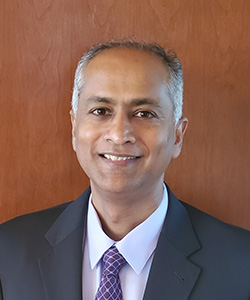New caucus prioritizes ‘sleep health’ on Capitol Hill

By Theresa Flaherty, Managing Editor
Updated 10:51 AM CST, Mon December 21, 2020
 DARIEN, Ill. - The Congressional Sleep Health Caucus will, among other things, help to raise awareness of obstructive sleep apnea and the effectiveness of CPAP therapy, says Dr. Kannan Ramar, president of the American Academy of Sleep Medicine.
DARIEN, Ill. - The Congressional Sleep Health Caucus will, among other things, help to raise awareness of obstructive sleep apnea and the effectiveness of CPAP therapy, says Dr. Kannan Ramar, president of the American Academy of Sleep Medicine.
The AASM launched the caucus earlier this month to highlight the importance of sleep health on helping to control cardiovascular diseases, diabetes and obesity.
“The Sleep Caucus is a major movement in the right direction to drive that awareness, not just for the public but also to emphasize that sleep is associated with improved quality of life,” he said.
Ramar spoke with HME News recently about the Caucus—co-chaired by Reps. Zoe Lofgren, D-Calif., and Rodney Davis, R-Ill.—and the need to prioritize sleep as part of better patient-centered care.
HME News: What are some of the immediate goals of the Sleep Health Caucus?
Dr. Kannan Ramar: The caucus is planning to hold briefings on various topics like the elimination of Daylight Savings Time and sleep health disparities. We are hoping the caucus will focus on healthy sleep and overall wellbeing, which will lead to increased productivity and public safety. They will also focus on sleep disorders such as OSA and showing the effectiveness of treatment such as CPAP or BiPAP.
HME: Have you found that payers are willing to pay for treatment for OSA and other sleep disorders?
Ramar: If we look at it from the perspective of patient-centered care, there are a lot of hurdles. From a provider’s perspective, there are paperwork and Stark law issues. CMS has made some changes to look at it from a value-based care perspective, but there’s room for improvement. That’s where we can use the caucus to drive patient-centered, value-based care and then address issues that are causing potential barriers.
HME: Why do so many Americans have trouble sleeping?
Ramar: I don’t think people are looking at it as a priority. It’s a lack of awareness and education. The average adult needs seven hours or more sleep to function well the next day. If people understood the importance of sleep as part of (their overall health), they would start looking into ways to prioritize it.
Comments